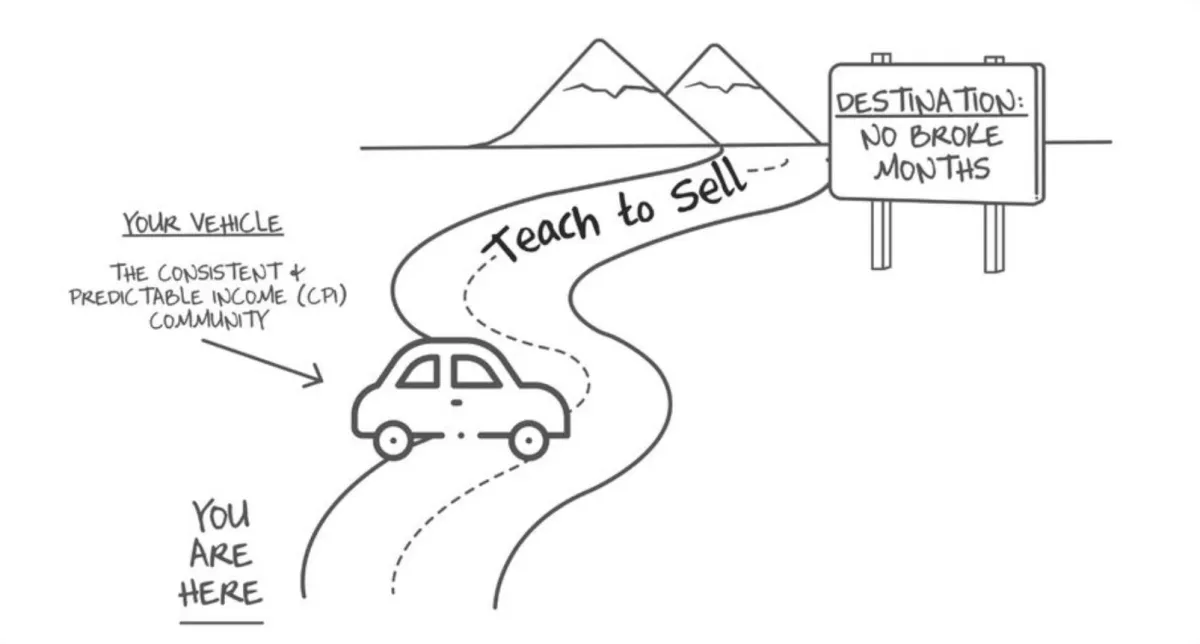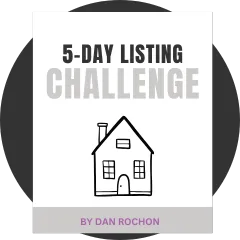
Do You Want Consistent and Predictable Income (CPI)?
Teach to Sell:
The NEW Way to Persuade Human Behavior
The NEW Way to Persuade Human Behavior
Achieve Consistent Income with Expert Coaching –
No Broke Months
Gain Consistent Income with Teach to Sell
Expert Business Coaching for Consistent and Predictable Income
Discover proven business coaching methods to help you achieve financial freedom and sales success.
The Teach to Sell system guides entrepreneurs through the essential steps for consistent income and sales growth.
HOW TO TAKE LISTINGS IN TODAY'S MARKET
Without Cold Calling, Door Knocking, or Begging
How important is understanding the customer’s experience in driving successful sales?
As you might imagine, businesses live and die by sales. And if you really want to sell, it’s not about you. You have to think about the other person’s experience so you can teach them about what’s coming for them to earn their trust. Sales thrive on trust.
And how do you build trust?
Through mastery.
That’s where “Teach to Sell” comes in. Teaching someone shows them you know what you are talking about,
which leads to sales.
Can’t attend the live session? No problem!
Unlock exclusive insights from Dan Rochon’s "Teach to Sell" method with our free, on-demand
Now is your chance to discover proven strategies for generating consistent, predictable income while mastering the art of influence and building stronger relationships. Whether you're aiming for more sales or personal growth, this powerful coaching is at your fingertips—ready whenever you are.
Don't miss out on transforming your business and life!
Sign up today and start your journey toward success.


Struggling with Inconsistent Closings?
You’re not alone.
Your biggest problem isn’t a lack of talent or effort—it’s the feast-or-famine cycle that keeps you guessing where your next deal is coming from.
One month, you’re celebrating a great commission check. The next? You’re stressed about bills, scrambling for leads, and wondering if real estate is really the long-term career you thought it would be.
Sound Familiar?
🔴 No reliable system – You’re relying on hope, referrals, and outdated tactics instead of a clear, repeatable process.
🔴 Burned out from cold calling – You hate feeling pushy and wish there was a way to attract clients without the hustle.
🔴 Overwhelmed by noise – You’ve tried coaching, courses, and marketing tricks, but nothing seems to stick.
🔴 Stuck in the cycle – You’ve had success, but you have no idea how to make it happen every single month.
The Fix? CPI + Teach to Sell = No Broke Months.
✅ CPI (Consistent and Predictable Income):
The community and proven roadmap to take the guesswork out of real estate success.
✅ Teach to Sell:
A smarter, more natural
way to generate leads, convert clients, and build a sustainable business—without feeling salesy.
✅ No Broke Months:
The outcome—consistent closings, financial stability, and total confidence in your business.
🔹 Ready to build a Consistent and Predictable Income? 🔹

DO YOU WANT HELP
GROWING
YOUR BUSINESS?

“Teach to Sell” is the ONLY system that ensures No Broke Months.
The Consistent and Predictable Income (CPI) Community
is your vehicle to show you how to "Teach to Sell".
When you embrace “Teach to Sell,” you will
transform your life and have financial freedom and success.
